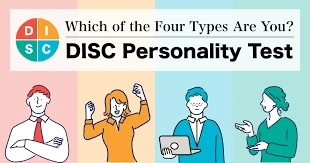In today's dynamic work enviroanment, understanding interpersonal relationships and enhancing communication are crucial for success. The DISC personality test is a powerful tool that provides insights into individual behaviors and preferences, promoting better teamwork and personal development. This blog post delves into the intricacies of the DISC personality test, its benefits, and practical applications.
What is the DISC Personality Test?
The DISC personality test is a behavioral assessment tool based on the DISC theory of psychologist William Marston. The test categorizes individuals into four primary personality types: Dominance (D), Influence (I), Steadiness (S), and Conscientiousness (C). Each type has unique characteristics and preferences that influence how individuals interact with others and approach their work.
The Four DISC Personality Types
Dominance (D): Individuals with a high D score are decisive, assertive, and confident. They are natural leaders who thrive on challenges and are motivated by results and success.Influence (I): High I individuals are sociable, enthusiastic, and persuasive. They excel in environments that require communication, collaboration, and creativity.Steadiness (S): Those with a high S score are reliable, patient, and cooperative. They value stability and consistency, making them excellent team players who prioritize harmony and support.Conscientiousness (C): High C individuals are analytical, detail-oriented, and systematic. They prioritize accuracy and quality, excelling in roles that require precision and careful planning.Benefits of the DISC Personality Test
The DISC personality test offers several benefits for both individuals and organizations:
Enhancing Self-Awareness
By identifying one's primary DISC type, individuals gain a deeper understanding of their strengths, weaknesses, and behavioral tendencies. This self-awareness is crucial for personal development and improving interpersonal relationships.
Improving Team Dynamics
Organizations can use the DISC personality test to build more cohesive and effective teams. Understanding each team member's personality type helps in assigning roles that align with their strengths, fostering better collaboration and reducing conflicts.
Enhancing Communication
Effective communication is essential for any successful relationship. The DISC personality test provides insights into preferred communication styles, enabling individuals to tailor their approach when interacting with different personality types. This leads to more productive and harmonious interactions.
Facilitating Leadership Development
Leaders can use the DISC personality test to develop a more adaptive leadership style. By understanding their own and their team members' personality types, leaders can motivate and manage their teams more effectively, fostering a positive and productive work environment.
Practical Applications of the DISC Personality Test
The DISC personality test is widely used in various settings, including workplaces, educational institutions, and personal development programs. Here are some practical applications:
Recruitment and Selection
Employers can use the DISC personality test during the hiring process to identify candidates whose personality traits align with the job requirements and organizational culture. This helps in making informed hiring decisions and building a more effective workforce.
Team Building and Development
Teams can use the DISC personality test to gain insights into each member's strengths and areas for improvement. This understanding promotes better teamwork, enhances productivity, and helps in addressing any potential conflicts proactively.
Personal and Professional Coaching
Coaches and mentors use the DISC personality test to tailor their guidance and support to the individual's personality type. This personalized approach helps in setting realistic goals, improving performance, and achieving personal and professional growth.
Conflict Resolution
Understanding the different DISC personality types can be instrumental in resolving conflicts. By recognizing the underlying motivations and communication styles of the parties involved, it becomes easier to address issues constructively and find mutually agreeable solutions.
The DISC personality test is a valuable tool for enhancing self-awareness, improving communication, and fostering better teamwork. By understanding the four DISC personality types and their unique characteristics, individuals and organizations can leverage this knowledge to achieve personal and professional success. Whether you're looking to build stronger teams, improve leadership skills, or enhance your interpersonal relationships, the DISC personality test offers practical insights that can make a significant difference.



